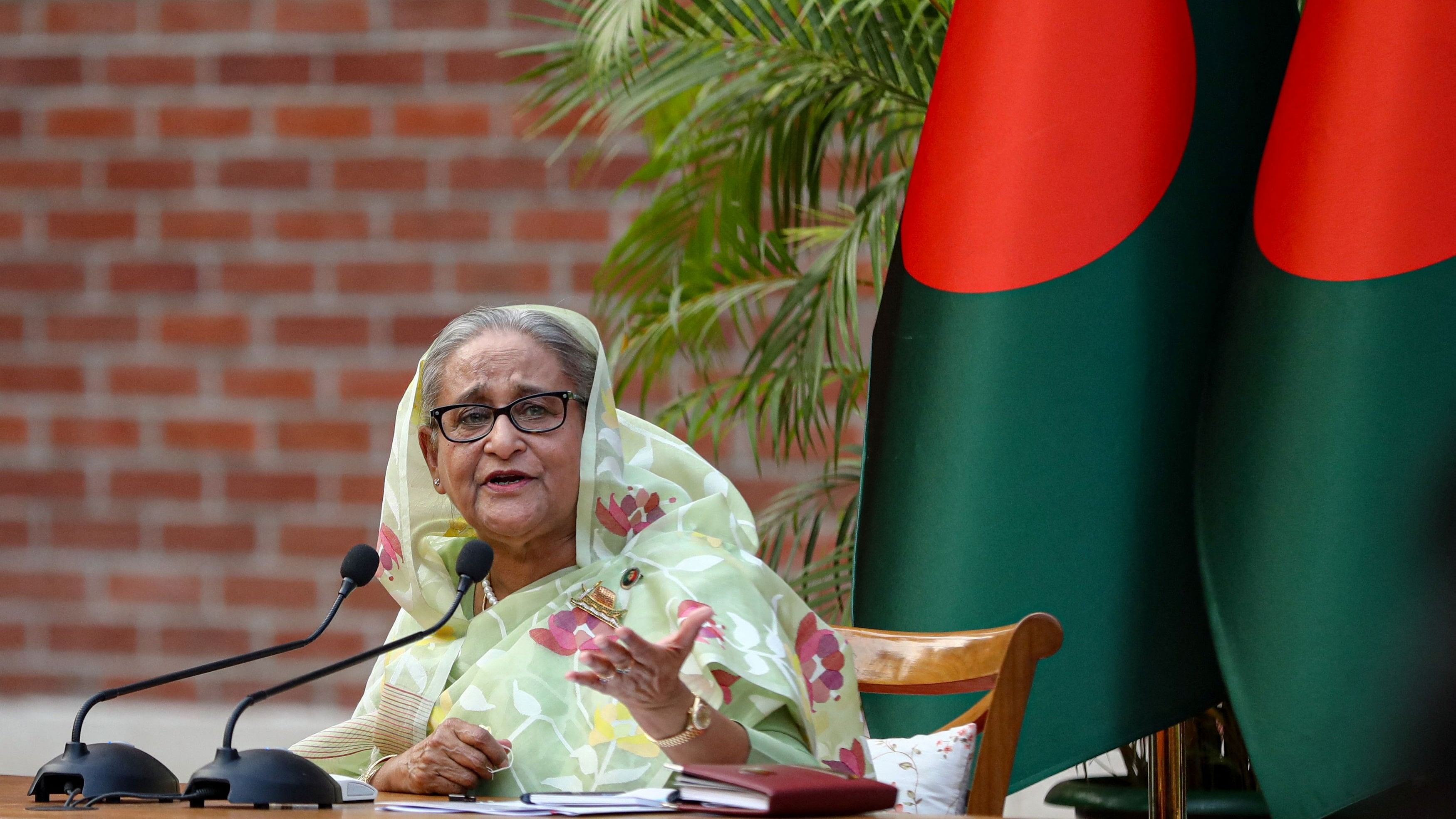
Former Bangladesh Prime Minister Sheikh Hasina.
Credit: Reuters Photo
New Delhi: Dhaka will ask New Delhi to ensure the return of Sheikh Hasina from India if the law of Bangladesh requires so, said Mohammed Touhid Hossain, the advisor on foreign affairs of the new interim government of the neighbouring country.
Touhid Hossain said that the interim government led by Chief Advisor Muhammad Yunus would want the “people of Bangladesh” to “feel” that India was indeed “a good friend” of their nation.
His comment was followed by the statement of his colleague Brig Gen (retd) M Sakhawat Hossain, advisor on home affairs, saying Sheikh Hasina would be always welcome to return from India to Bangladesh, but she should not foment unrest.
Sheikh Hasina had stepped down as the prime minister of Bangladesh before flying from Dhaka to the Indian Air Force base at Hindon on the outskirts of New Delhi on August 5, just a few hours before her official residence – ‘Gana Bhavan’ – had been stormed by irate mobs, protesting against Awami League government’s crackdown on the students, who had been protesting against reservation in public sector jobs.
Yunus, who had won the Nobel Peace Prize in 2006, was sworn in as the chief advisor of an interim government in Dhaka on August 8. Touhid Hossain and Sakhawat Hossain also took oaths along with him and were later assigned foreign affairs and home affairs portfolios respectively.
Touhid told journalists in Dhaka that the mere presence of an individual citizen of a country in another country could not influence the relations between the two.
He said that the bilateral relations would involve the interests of both Bangladesh and India. He was replying to a question about the implications of the presence of Sheikh Hasina in India on Bangladesh’s relations with its western neighbour.
He said that he would write to his counterpart in the Government of India requesting the return of Hasina to Dhaka as and when the Ministry of Law of the Government of Bangladesh would want the Ministry of Foreign Affairs to do so.
New Delhi already made it clear that Hasina had asked for and had been granted approval to come to India “for the moment” after stepping down as the prime minister of Bangladesh.
Her purported plan to travel to the United Kingdom and the United States soon after arriving in New Delhi did not work, with the informal responses from London and Washington DC being less than welcoming.
Hasina’s Awami League, which has been in power in Dhaka since January 2009, was accused by its rivals – Bangladesh National Party and Bangladesh Jamaat-e-Islami – of being excessively friendly with India.
New Delhi’s historic ties with the Awami League are rooted in the 1971 War of Liberation, which had been led by Hasina’s father Sheikh Mujibur Rahman supported by Prime Minister Indira Gandhi’s government in India and which had led to the birth of Bangladesh out of East Pakistan.
Touhid told journalists in Dhaka that while the governments of the two nations had shared excellent relations, he had doubts if the people of Bangladesh had indeed felt that they had been going through a ‘golden chapter’ of the relations with India.
The top brass of the governments in New Delhi and Dhaka had been till recently often stating that the bilateral relations between India and Bangladesh had been going through a golden chapter since 2009.
China has also been trying to woo the Awami League government in Bangladesh in order to expand its tentacles in the eastern neighbourhood of India.
Touhid said that the interim government of Bangladesh would try to maintain a balance in the country’s relations with big powers, including India and China.
